Managing finances is crucial for small business owners. A well-organized approach to financial statements can lead to better decision-making and overall success. This article will explore how to effectively organize financial statements to improve your business operations and financial health.
Key Takeaways
- Understanding financial statements helps clarify a business’s financial situation.
- Using technology can simplify financial management and improve accuracy.
- Regularly reviewing financial data aids in making informed decisions.
Mastering the Art of Small Business Financial Management
Understanding Key Financial Statements
Alright, let’s dive into the world of financial statements! Think of them as your business’s report card. You’ve got three main players: the balance sheet, the income statement, and the cash flow statement. Each one tells a different story about your business’s health.
- Balance Sheet: This is like a snapshot of your business at a specific moment. It shows what you own (assets), what you owe (liabilities), and what’s left for you (equity).
- Income Statement: This one’s all about the money coming in and going out over a period. It’s your profit and loss report, showing if you’re making money or just burning it.
- Cash Flow Statement: This is your cash’s journey. It tracks how cash moves in and out, helping you see if you can pay your bills or if you need to start selling lemonade on the corner.
The Importance of Accurate Financial Reporting
Let’s be real: nobody likes surprises, especially when it comes to money. Accurate financial reporting is your best friend. It helps you:
- Make informed decisions: Want to know if you can afford that new office coffee machine? Check your reports!
- Stay compliant: Nobody wants to deal with the taxman breathing down their neck.
- Attract investors: Show them you know your numbers, and they might just throw money at you.
Remember: Accurate reports are like a GPS for your business. They guide you where you need to go!
How to Use Financial Statements for Decision Making
Now that you’ve got your statements, how do you use them? Here’s a quick guide:
- Analyze trends: Look for patterns over time. Are your sales going up or down?
- Set budgets: Use past data to create realistic budgets. Don’t just guess!
- Identify areas for improvement: Are there expenses that could be trimmed? Maybe that subscription to a magazine you never read?
In short, your financial statements are not just numbers; they’re your business’s story. Use them wisely, and you’ll be making decisions like a pro in no time!
And don’t forget, if you need more help, check out guides & resources that can help you organize financial statements for better decision-making!
Streamlining Your Financial Processes for Success

Effective Budgeting Techniques
Budgeting might sound as fun as watching paint dry, but it’s your financial GPS! A solid budget helps you steer clear of financial potholes. Here’s how to get started:
- Set clear goals: What do you want to achieve? More sales? Less spending?
- Track your spending: Use apps or spreadsheets to see where your money goes.
- Adjust as needed: Life happens! Don’t be afraid to tweak your budget.
Optimizing Accounts Receivable
Let’s face it, waiting for payments can feel like watching grass grow. To speed things up:
- Send invoices promptly: Don’t wait! Get those invoices out the door.
- Offer discounts for early payments: Everyone loves a deal!
- Follow up: A friendly reminder can work wonders.
Leveraging Technology for Better Financial Management
Technology is your best friend in financial management. Embrace tools that simplify your life! Consider:
- Accounting software: QuickBooks or FreshBooks can save you hours.
- Automated reminders: Set them up to chase payments without lifting a finger.
- Cloud storage: Keep your documents organized and accessible anywhere.
Streamlining your financial processes isn’t just about saving time; it’s about making smarter decisions that can lead to better business outcomes.
By focusing on these areas, you’ll not only keep your finances in check but also free up time to focus on what you love—growing your business!
Strategies for Maintaining Positive Cash Flow

Cash Flow Forecasting Tips
Forecasting your cash flow is like having a crystal ball for your finances. You want to see the future! By predicting your cash inflows and outflows, you can avoid nasty surprises. Here’s how to do it:
- Track your income: Know when payments are coming in.
- Monitor your expenses: Keep an eye on when bills are due.
- Adjust regularly: Update your forecast as things change.
Cost Control and Reduction Strategies
Cutting costs doesn’t mean you have to live on ramen noodles. Here are some fun ways to trim the fat:
- Evaluate subscriptions: Are you still using that streaming service? Cancel it!
- Negotiate with suppliers: Ask for discounts or better terms. You might be surprised!
- Go digital: Reduce paper costs by switching to e-billing.
Building an Emergency Fund
Think of an emergency fund as your financial superhero. It swoops in to save the day when unexpected expenses arise. Here’s how to build one:
- Set a goal: Aim for 3-6 months of expenses.
- Automate savings: Set up automatic transfers to your savings account.
- Use windfalls wisely: Tax refunds or bonuses? Save them!
Remember, a little planning goes a long way. Keeping your cash flow positive is like keeping your car fueled; it helps you go places!
Tax Planning and Compliance for Small Businesses
Maximizing Tax Deductions
When it comes to taxes, every penny counts! Maximizing your deductions can save you a bundle. Here are some common deductions you might be missing:
- Advertising and Promotion: This includes everything from your website to social media ads.
- Business Insurance: Whether it’s liability or health insurance for your employees, don’t forget to write it off!
- Bank Fees: Yes, those pesky fees can be deducted too!
Staying Compliant with Tax Regulations
Staying compliant is like keeping your house clean—nobody enjoys it, but it’s necessary! Here’s how to keep your business in the clear:
- Keep Accurate Records: Track all income and expenses. Trust me, the IRS loves a well-organized file.
- File on Time: Late fees are like a bad haircut—unnecessary and regrettable.
- Consult a Tax Professional: They can help you navigate the tricky waters of tax laws and avoid common pitfalls.
The Role of a Tax Professional in Your Business
Having a tax professional is like having a GPS for your financial journey. They can help you:
- Identify tax-saving strategies that fit your business.
- Ensure you’re compliant with the latest tax laws.
- Plan for future tax seasons so you’re not scrambling at the last minute.
Remember, tax planning isn’t just for April! It’s a year-round activity that can lead to significant savings.
So, roll up your sleeves and get ready to tackle those taxes like a pro!
Wrapping It Up: Financial Statements Made Easy
So there you have it! Organizing your financial statements isn’t just about crunching numbers; it’s about making smart choices for your business. Think of your financial statements as your business’s report card. They show how well you’re doing and where you can improve. By keeping them neat and tidy, you’ll be ready to tackle any financial challenge that comes your way. Plus, you’ll impress your investors and keep your team on the same page. Remember, a little organization goes a long way in helping you make better decisions. So grab those spreadsheets, get to work, and watch your business thrive!
Frequently Asked Questions
What are financial statements?
Financial statements are records that show how a business is doing financially. They include the income statement, balance sheet, and cash flow statement.
Why are financial statements important?
Financial statements help businesses understand their money situation. They show profits, losses, and how cash is moving in and out.
How can I use financial statements for decision making?
You can use financial statements to see where your money is going, plan budgets, and make smart choices about spending and saving.







